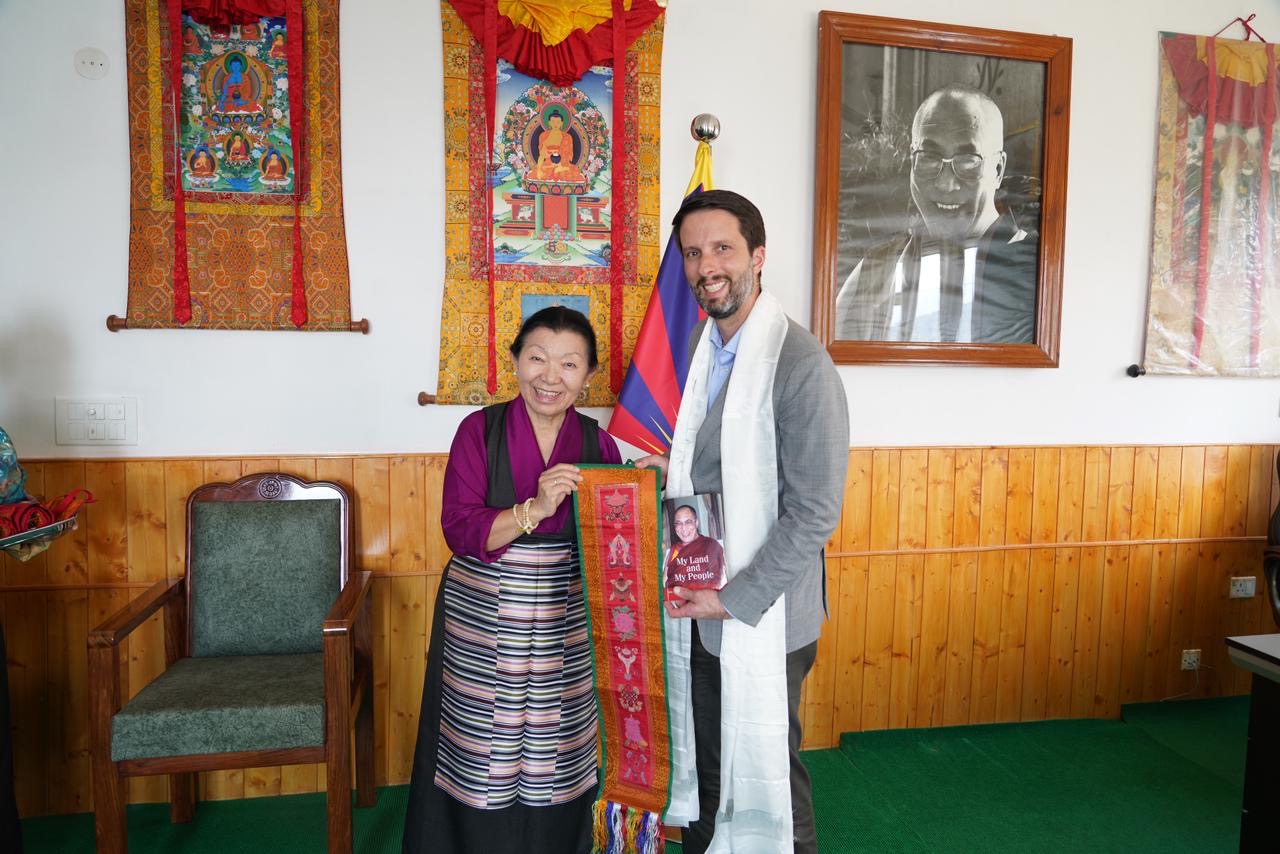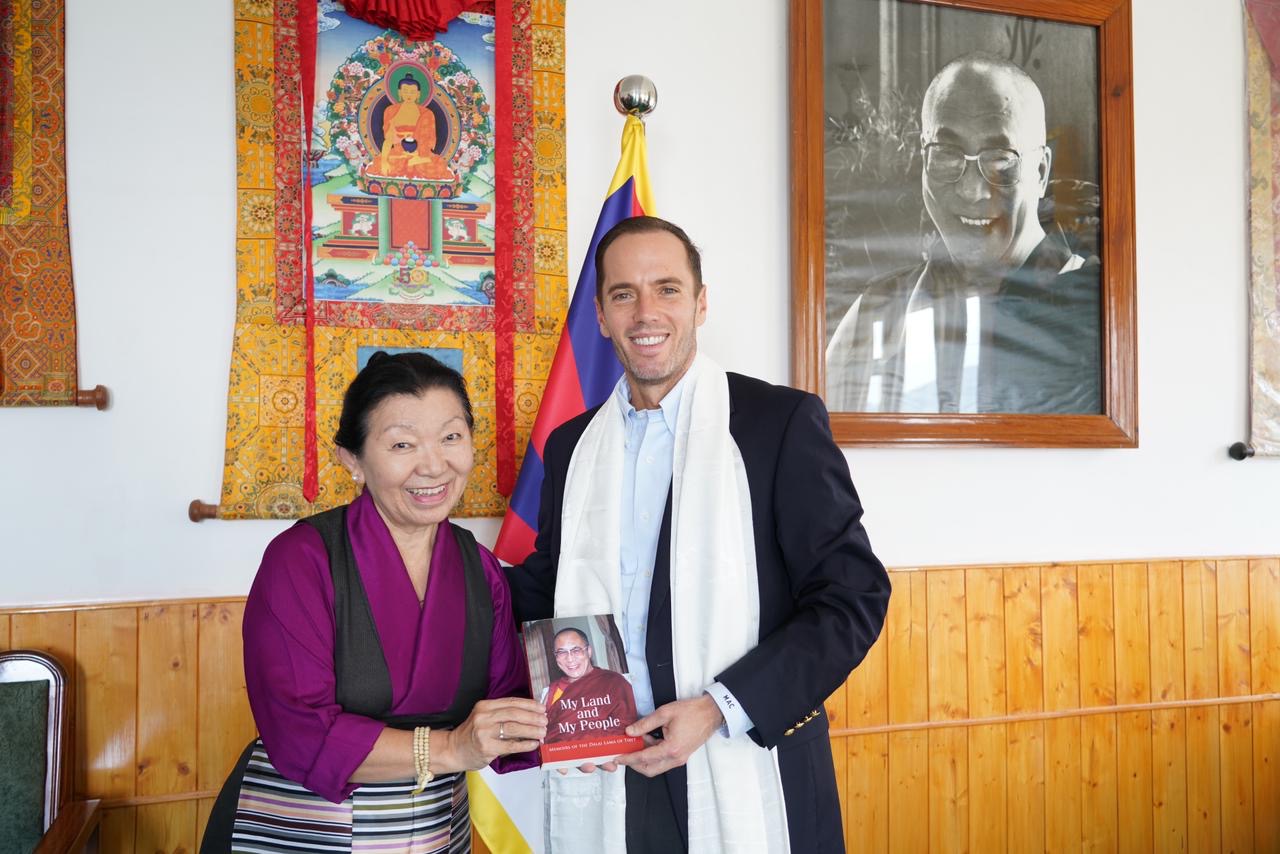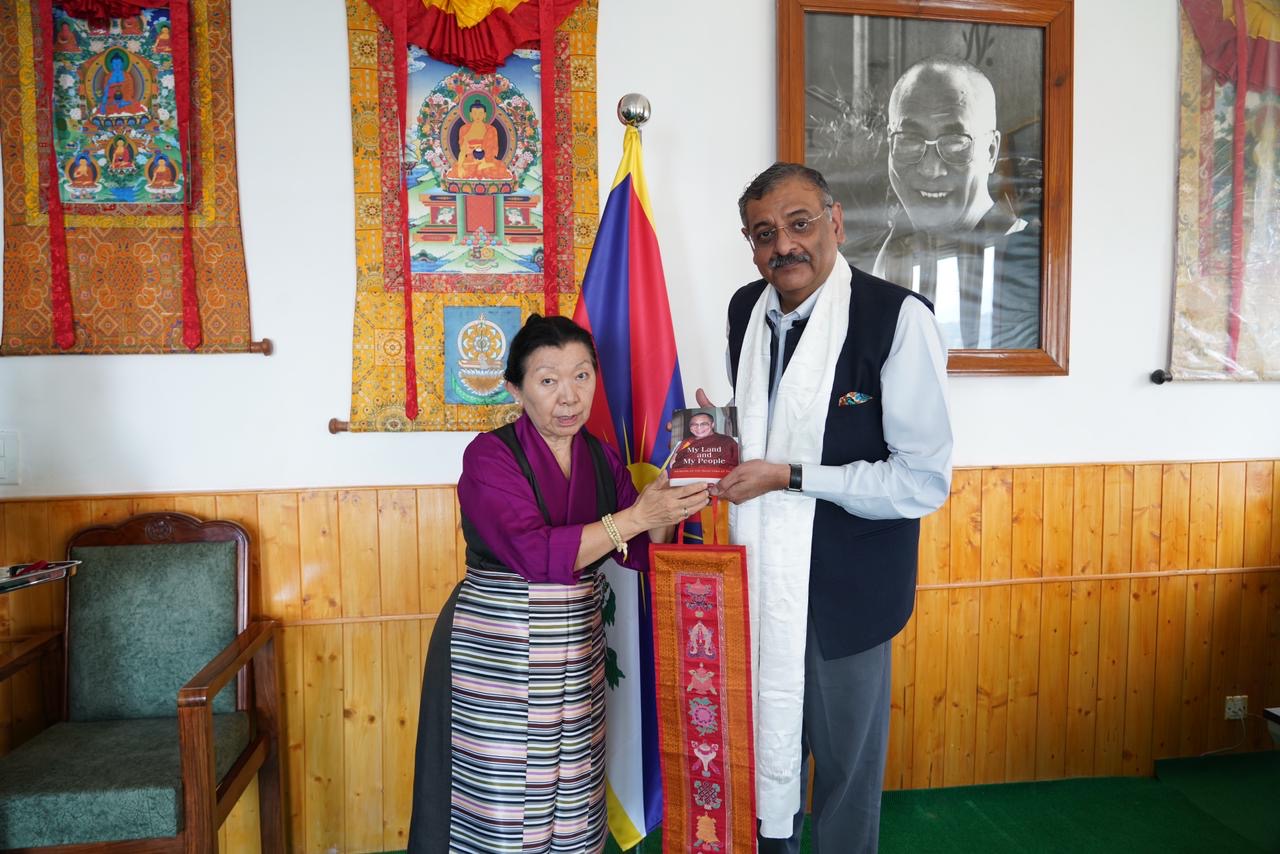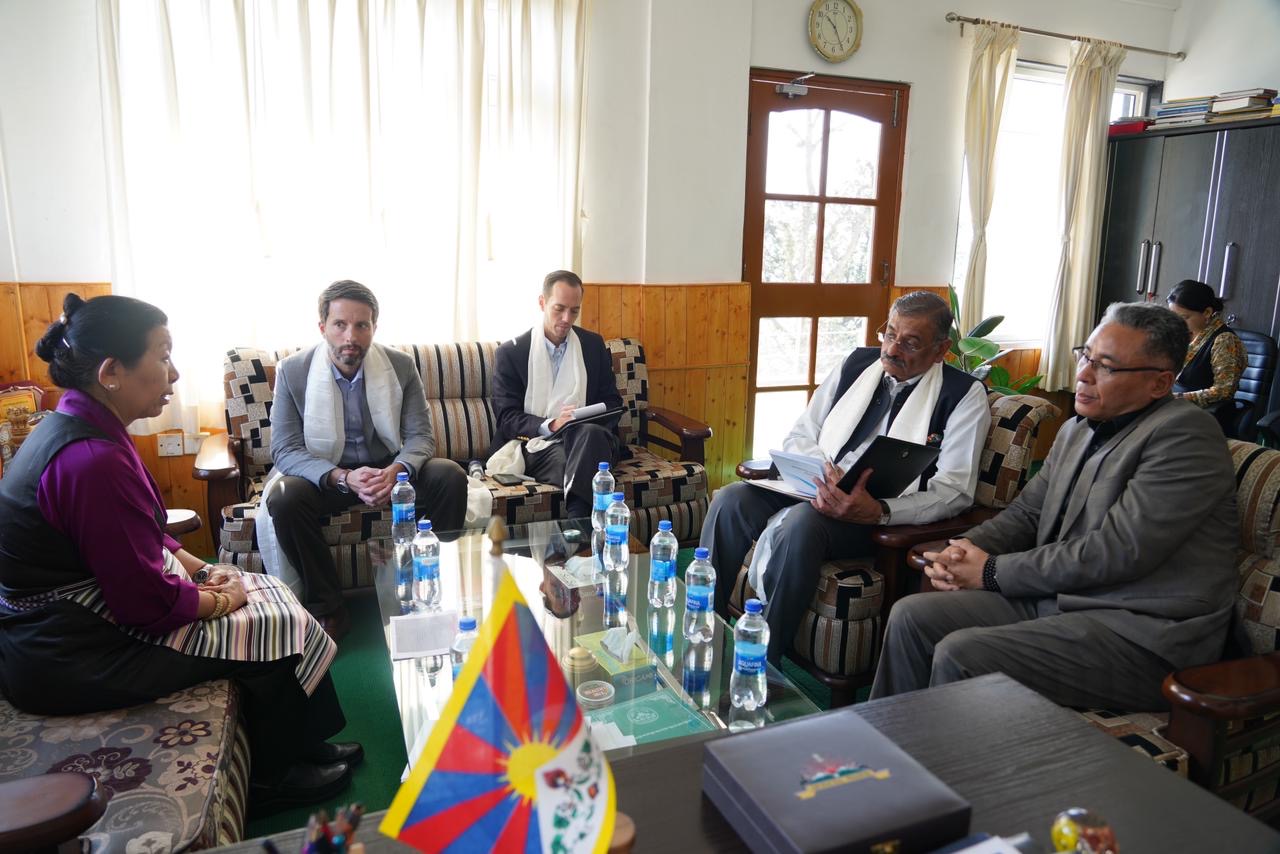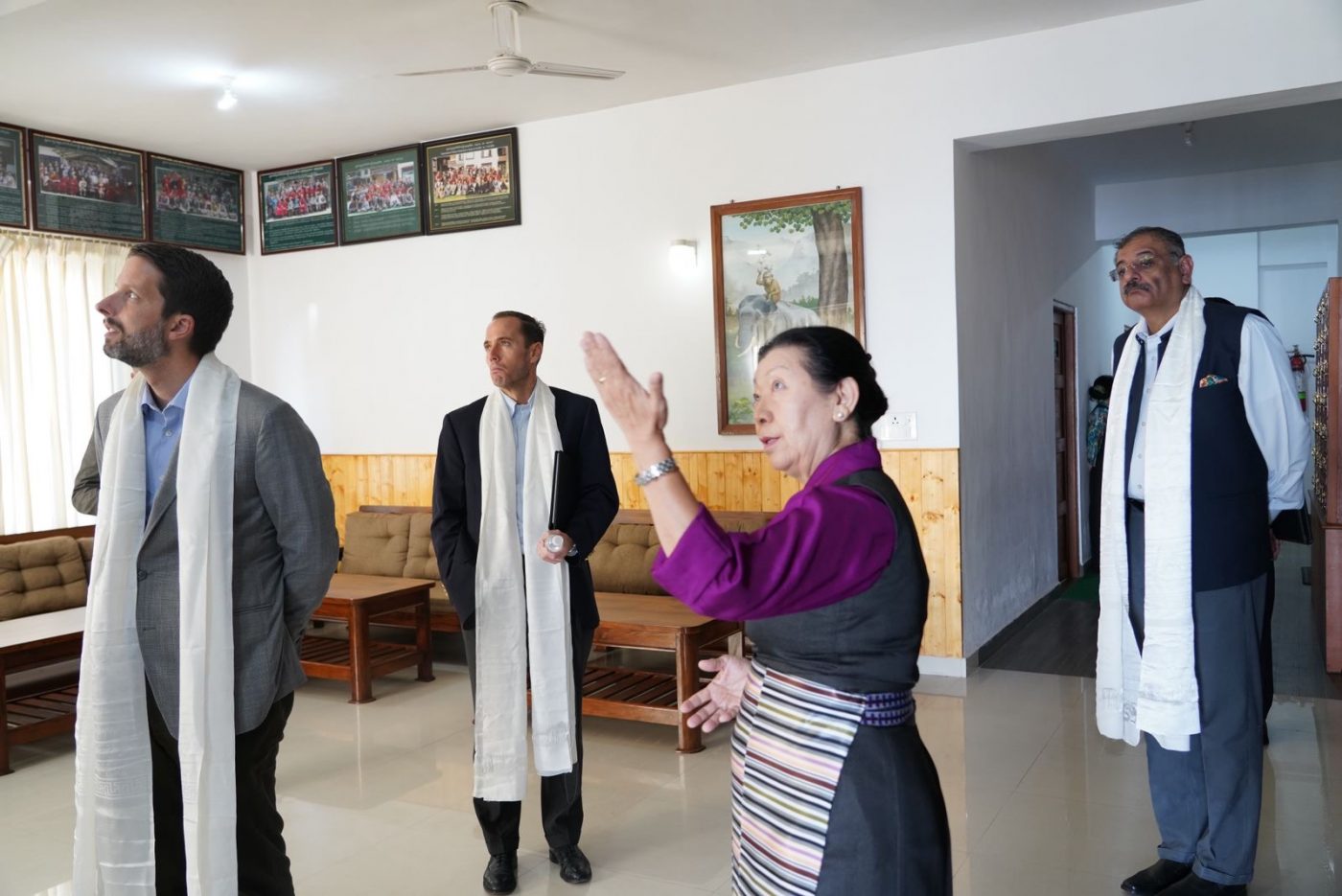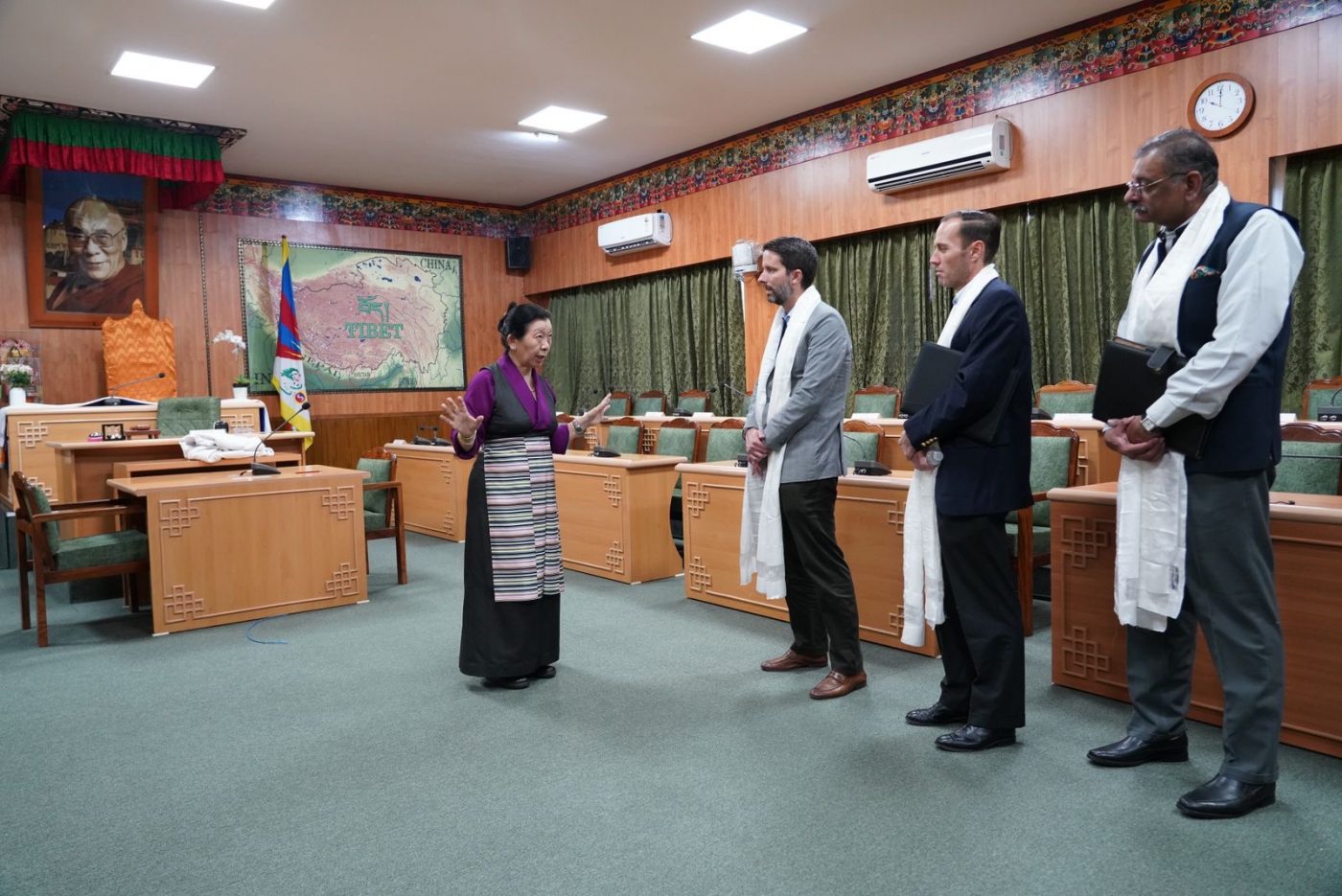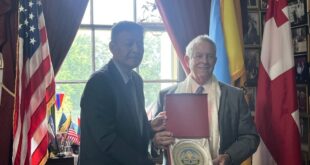Dharamshala: Deputy Speaker Dolma Tsering Teykhang of the Tibetan Parliament-in-Exile met with staff from the US Embassy of Delhi, including James Plasman, First Secretary; Mike Cramer, Political Officer; and Ajay Dayal, Political Specialist on 8 October 2024. They were joined by Dhondup Gyalpo, Secretary of the Delhi-based Tibet Bureau, and Tenzin Paljor, protocol officer from the DIIR.
The US Embassy staff were welcomed with Khatak, traditional Tibetan ceremonial scarves, and taken on a guided tour of the parliament hall.
During the visit, the Deputy Speaker provided an overview of the evolution of Tibetan democracy, highlighting key milestones such as His Holiness the Dalai Lama’s vision for a democratic system for Tibet, the establishment of the Tibetan Parliament-in-Exile with 13 elected representatives in 1960, the inclusion of women’s representation in 1964, the adoption of the Charter of Tibetans in Exile in 1991, and the devolution of His Holiness’s political authority to elected leaders in 2011.
Additionally, the U.S. Embassy staff were briefed on the composition and undertaking of the Tibetan Parliament, including its key functions such as biannual sessions, visitation programs, and advocacy initiatives, among others.
The Deputy Speaker subsequently expressed her heartfelt gratitude to the U.S. government, Congress, and citizens for their unwavering support of the just cause of Tibet. She clarified that the One China policy has no justification regarding Tibet, as it lacks historical backing. She emphasised that the international community should not yield to China’s dictates.
Speaking about the systematic targeting of Tibet’s religion and language by the Chinese government through policies aimed at Sinicisation, the Deputy Speaker highlighted China’s coercion of Tibetan children into colonial boarding schools and the promotion of marriages between Tibetans and Hans, among other measures that undermine Tibetan identity.
During the meeting, the Deputy Speaker emphasised the significance of the Tibetan Plateau and the rivers flowing from Tibet for the global climate, particularly focusing on China’s claim to hegemony over Tibet’s water resources and the serious impact this has on downstream South Asian countries.
-Report filed by Tibetan Parliamentary Secretariat
